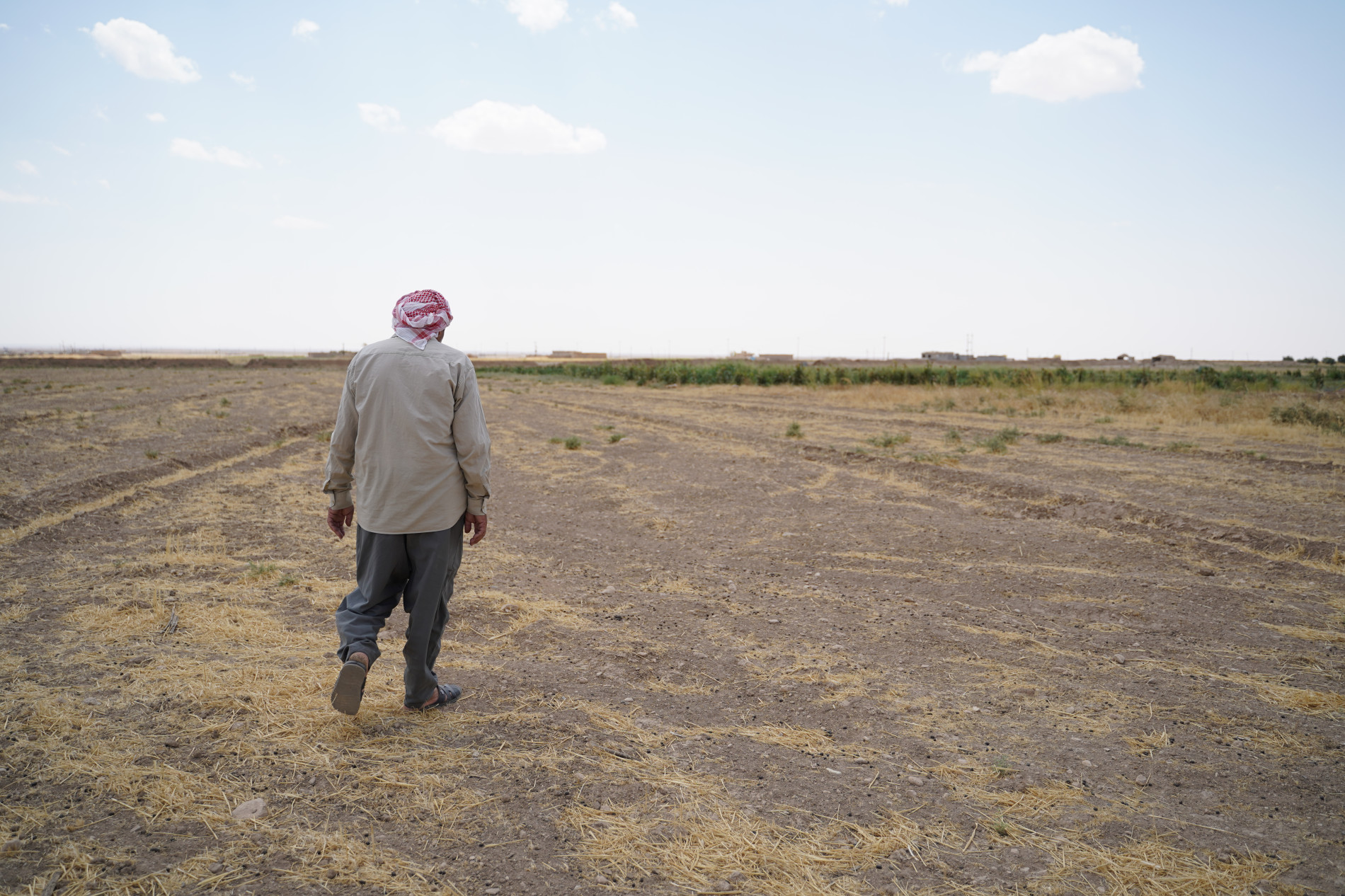
المناعة المناخية
لأكثر من عقد من الزمن، تساعد منظمة الناس في حاجة المجتمعات المعرضة للخطر حول للعالم للتأقلم مع آثار التغير المناخي والتكيف مع كوكب متغير. هدفنا هو جعل كوكبنا مكان أقضل ليس فقط لأنفسنا ولكن لما يقارب 10 مليارات شخص سوف يتشاركون الكوكب في 2050. للوصول إلى هذا الهدف يلزمنا مساعدة الجميع، لذا ساعدونا ولنعمل معاً!
في الشرق الأوسط، تتبنى منظمة الناس في حاجة المناعة المناخية في كل مشاريعها، مثل تركيب ألواح الطاقة الشمسية لتزويد المدارس بطاقة نظيفة، وإنشاء محطات ضخ للمياه مزودة بطاقة شمسية بالإضافة إلى إجراء دراسات حول الهجرة المناخية وآثار التغير المناخي على المنطقة.
نعمل الآن لتوسيع نطاق عملنا لمساعدة المجتمعات المحلية في الشرق الأوسط لتعزيز مناعتها المناخية وإيجاد حلول أكثر ابتكاراً.
كامل النص
نص أقل
النشاطات القائمةأوالنشاطات الماضية

سبل العيش و الزراعة
في المناطق حيث تعمل PIN، الحرب أوقفت أغلب أشكال الوظائف، مع اضطرار المصانع و منشآت التوظيف الكبيرة للإغلاق. للاستجابة لذلك، قامت منظمة الناس في حاجة بتأسيس مجموعة من مراكز التدريب و التأهيل المهني، الموظف بها عدد من المدربين المؤهلين من المجتمع المحلي. نزود الطلاب بالمواصلات و كل المواد الازمة لخوض التدريب، مع الأدوات لاستمرار سبل معيشتهم ما بعد التخرج. يتلقى الطلاب كل من التدريب التقني و الأعمال، و أكثر الخريجين تفوقاً و حماساً يزودون بمنح لإطلاق أعمالهم الخاصة الصغيرة. الإنتاج الزراعي في سوريا تقلص بشكل كبير منذ بداية الصراع، مع دفع الأسعار للزيادة بالنسبة للعائلات المحتاجة. منذ 2014، قامت منظمة الناس في حاجة بتدريب المزارعين الصغار و زودتهم بقسائم لشراء البذور الأكثر طلباً، الأسمدة و الأدوات. نشاطتنا للنقد مقابل العمل توفر وظائف قصيرة الأمد، و مؤقتة للعائلات المحتاجة لكسب المزيد من المال عبر رفع الأنقاض، إعادة تأهيل الشوارع، إصلاح قنوات الري و المدارس، خياطة بدلات المدارس، و استعادة شبكات المياه و الكهرباء. هذه النشاطات توفر للعائلات مصدر دخل مقبول لشراء احتياجاتهم، تعزيز المقاومة و الكرامة و في الوقت نفسه دعم المجتمعات و الأسواق المحلية.

Improved School water supply, sanitation and Hygiene and reduced water-borne diseases in conflict-affected areas of Iraq
During the course of this project, PIN rehabilitated WASH facilities in 10 schools and distributed 2,860 hygiene kits to children in an attempt to improve the hygiene and general livelihoods of people in areas previously controlled by the self-proclaimed “Islamic State” who saw significant damage to local infrastructure. Additionally, PIN facilitated sanitary clubs and menstrual hygiene management sessions for boys and girls to teach children key behaviour techniques such as washing hands and de-stigmatizing menstruation.

Rehabilitation of critical local infrastructure
Our livelihood and cash-for-work focused activities in the Bashiqa and Bahzani sub-districts strived to reduce local community’s vulnerability and support their resilience by increasing agricultural production and supporting immediate cash transfer to cover the immediate needs. Over 800 people in these districts benefited from the rehabilitation of critical irrigation schemes and crop and olive groves in 2019. These activities promote sustainability by re-activating or strengthening pre-existing livelihood opportunities while relying on and further developing already present human capital and skills through involvement of local labour force in the rehabilitation works.

Supporting resilience and livelihood recovery
In cooperation with our Alliance2015 partners, we provide multi-sectoral assistance to strengthen resilience of internally displaced persons and support recovery of host communities. Our joint programming focuses on the provision of tailored vocational and business trainings targeting urban households and distribution of business reactivation grants to support small to middle-sized businesses in regaining their momentum. Overall, we work toward the re-establishment of essential services, increased access to livelihood opportunities, improved access to water and sanitation facilities and generation of alternative sources of household income. As part of this project, we are partnering with the Ministry of Labour and Social Affairs (MoLSA) in supporting their Technical and Vocational Education and Training and Access to Employment centres to ensure the sustainability of our livelihood efforts even after the project’s end.
